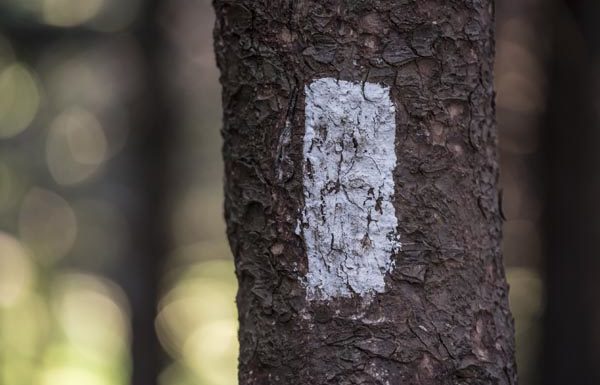Hiking is an interesting and exciting adventure. But carrying a relatively heavy backpack for hours while you walk up rugged terrain in the wilderness, requires you to learn how to stay safe during a hike. Here is a brief guide with safety tips that will help both experienced hikers and beginners who are hiking on the Appalachian Trail.
Table of Contents
Hike in Groups
As much as possible, avoid hiking alone. During hiking and any other form of outdoor activity, you should travel with a group and remain close to other hikers in the group. If you are hiking alone for any reason, connect with a group of hikers that you feel comfortable with. Be wary of telling strangers your plans and avoid people who act strangely or are intoxicated.
Give Your Hiking Plans to Someone
Let a close friend or relative know about your hiking plans and tell them when you will return. Tell your contact person the trail name you use. Give them the phone number of the agency that is managing the park or area for a short hike. For a longer hike, make sure you check in regularly with your folks at home.
Take a Map and Stay on Marked Trails
Walk on the marked trails and avoid veering off into the bush. On the Appalachian Trail, there are trail blazes on trees and landmarks on the ground to guide you. Pay close attention to them so that you can reduce your chances of getting lost. During an emergency, a map will make it easier for you to describe surrounding landmarks and give details about your location so rescue workers and law enforcement agents can easily find you.
Avoid Bad Weather
Hiking exposes you to environmental risks. Weather changes may occur suddenly as you move from one state to another and it may be difficult to find shelter. Discern the condition of the skies and bear in mind that sudden spells of hail and snow can happen on the trail. Make sure you take adequate rain gear so you can prevent hypothermia if rain starts suddenly. On the other hand, you should be prepared for the hot weather in Virginia during summer.
Stay Hydrated
In hot weather, dehydration can occur quickly as you lose water rapidly through sweating. Drink a lot of water to stay hydrated during the day. Don’t be too ambitious on a hot summer day. Check the weather forecasts before you set out. Start your hike very early in the day when the temperature could be at least 20 degrees cooler than the afternoon.
Dress in Layers
Dress in layers and don’t wear cotton. Wear synthetic fabrics that are breathable; they will eliminate moisture and heat quickly. Cotton clothing like jeans, jackets and pants will make you feel cold due to rain or sweat, and this could lead to hypothermia. Natural wool and nylon fabrics provide better insulation. Remember that dressing in layers will allow you to take off your clothing easily when you feel hot and add more clothing when you need more warmth.
Use Trail Registers
At each designated shelter on the A.T., there are notebooks called trail registers. Sign in with a trail name that does not give details about gender and other personal information. If a major crime occurs, local authorities always check the trail registers first. Let your contact at home know the trail name you are using. You can also report any strange occurrence or suspicious behaviour in the registers.
Know the Limitations of Cell Phones
Cell phones are great for communicating with loved ones, monitoring weather forecasts, and checking online maps while hiking. But most of the trail passes through the wilderness, and you may hike for miles without any network signals. Bear in mind that your cell phone battery may also run down before you get to a place where you can charge it. So take a physical map with you and don’t depend on your cell phone. Also, you should take a whistle along with you and learn how to use it to provide a signal to other hikers when you are in distress.
Protect Yourself from Animal Attacks
You will come across various kinds of wildlife including bears, venomous and non-venomous snakes, ticks, spiders and mosquitoes. Bears are becoming increasingly common in Georgia, Pennsylvania and New Jersey. To prevent unnecessary bear encounters, you should store your food and food waste properly. Hang food items and cooking utensils or use bear canisters when available. Never feed bears or leave food for them. If you sight a bear coming to where you are staying or cooking, make loud noises, blow your whistle, throw rocks and do all you can to fight it.
Other animals like snakes will seldom attack you first. Just ensure that don’t step on them. Snakes can be active at night in hot weather so always use a flashlight. Sometimes you may pick up ticks with your footwear or clothing while walking in the woods. So you should always check for ticks before you check into a camp site or shelter at night.
Conclusion
If you apply these basic safety tips, you should be able to stay safe and protect yourself from strangers, harsh weather, wildlife attacks and other risks you may encounter during hiking.


Leave a Reply